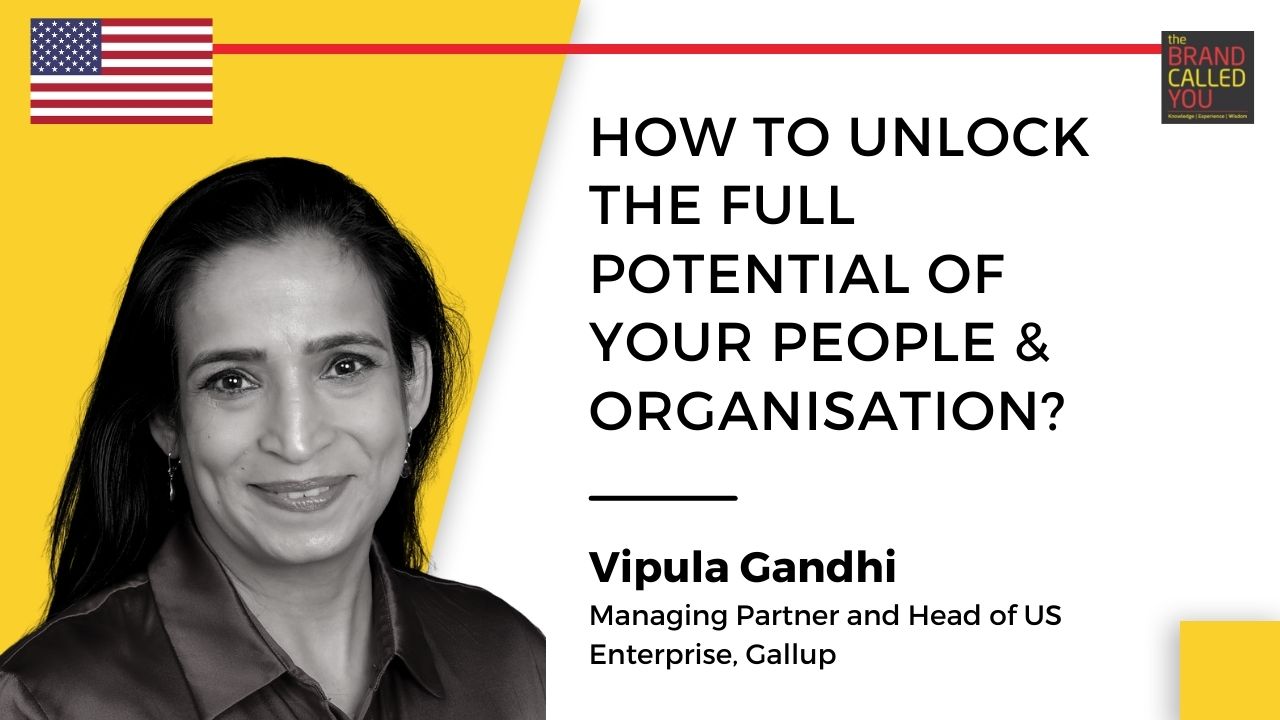Vipula Gandhi, Managing Partner and Head of US Enterprise, Gallup
Vipula Gandhi, managing partner and head of U.S. enterprise, is passionate about the human side of organizations.
Podcast
Overview
About Vipula Gandhi
Vipula is the Head of US Enterprise and Managing Partner at Gallup Incorporation. She is the only women leader at Gallup in 85 years. She is also the founding board member of the Peter Drucker Foundation. Before joining Gallup, Vipula had a career in corporate banking with one of the largest banks in London.
Discussion:-
How has Gallup evolved since it was founded in 1935 from a public opinion poll to a vast array of consulting services?
Vipula credits the founder of Gallup, Goerge Gallup’s integrity and independence in the company’s success. He believed and aimed to represent the lived experiences of Americans to leaders to improve the effectiveness of leaders and also to maintain a delicate democracy. The work of Gallup has also evolved from centered on Americans to serving organizations globally.
“My business drives organic growth based on the understanding of human nature and behaviour“, says Vipula talking about her role. They also provide consulting services to companies like Accenture, Disney, Microsoft.
How has the entire process of polling changed because of technology?
Vipula emphasizes the importance of doing analytics based on the best way to collect data from individuals. Using technology where it helps and also relying on the tried and tested methods as and when required is the way to get the right information.
What might be the reasons causing the great resignation?
A recently conducted survey showed that around 3% of people quit their jobs in the month of September. That’s a huge number and definitely trouble for organizations. She attributes some reasons including the increased number of people taking retirements from their jobs, the lack of basic benefits provided by some companies, lack of content, and also the higher number of job availability in recent times. The pandemic forced everyone to reflect and people no longer want to work where they do not feel like serving their purpose and get fulfillment.
How are employees and organizations adapting to the culture of “work from home”?
Every organization needs to have a unique plan to manage remote work effectively. There’s no one solution, as organizations try to meet the expectations of employees and customers. She says it is
important for leaders to be able to clarify expectations and priorities more effectively since it’s not possible now to assess the efficiency of an individual one-on-one.
How do you define culture for an organization?
The second part of the conversation is on culture. Culture tells people about the values of an organization. Every organization has an identity that is built of 3 things- purpose- why you exist, brand- how you are differentiated in the market and culture- how things get done.
When asked what advice she would give startups on building their culture, she responded, “Startups have to understand what do people value and once they do that they need to build an employee experience.”


